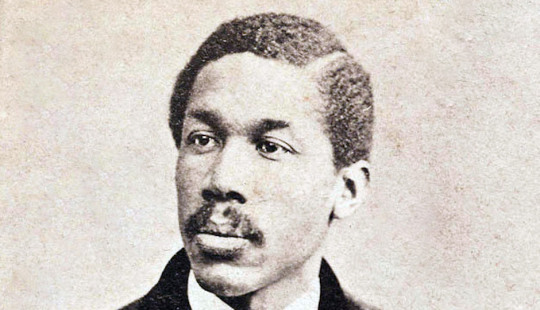Don't wanna be here? Send us removal request.
Text
Before the Chains: African Civilizations That Shaped a People Part II: Mali – The Empire of Gold, Justice, and Learning
When we trace the roots of Black history beyond the trauma of enslavement, we find a legacy of empire — not in fantasy, but in historical fact. Nowhere is that more evident than in the Mali Empire, one of the most powerful and sophisticated civilizations in medieval Africa. Rising in the 13th century after the fall of the Ghana Empire, Mali quickly became a political, economic, and cultural…
0 notes
Text
Reclaiming Black History: Beyond Slavery
Part I: Reclaiming the Origin Story When many Americans think of Africa in the context of Black history, the story often begins with slavery — a brutal rupture that stripped away language, culture, and identity. Ships. Shackles. Suffering. That’s often where the narrative starts. But that beginning is a lie by omission. Black history didn’t begin in chains.It began in kingdoms. In cities of…
0 notes
Text
The Rise and Fall of Pruitt-Igoe: A Symbol of Urban Renewal’s Broken Promises
In 1954, St. Louis saw the grand opening of the Wendell Pruitt Homes and William Igoe Apartments, collectively known as Pruitt-Igoe. This ambitious public housing project, designed by modernist architect Minoru Yamasaki, was hailed as a breakthrough in urban renewal. Its 33 eleven-story high-rises, built with federal funds, were intended to replace the slums of the city’s inner ring and provide…
0 notes
Text
2575-1069 BCE: The Old, Middle, and New Kingdoms of Egypt Flourishes - New Kingdom Part III
The New Kingdom of Egypt is often regarded as the most iconic era in the country’s long and storied history. Emerging from the disunity of the Second Intermediate Period, it marked the rise of Imperial Egypt—a period when Egypt not only ruled over its own lands but also became an empire through conquest, diplomacy, and trade. This period, especially the 18th Dynasty, is home to some of the most…
0 notes
Text
2575-1069 BCE: The Old, Middle, and New Kingdoms of Egypt Flourish - Part II: The Middle Kingdom (2040–1782 BCE)
The Middle Kingdom of Egypt, often referred to as the “Period of Reunification,” followed a time of political instability known as the First Intermediate Period. After the collapse of the Old Kingdom around 2181 BCE, Egypt entered a phase of decentralization and weak central authority. Regional governors, or nomarchs, wielded significant power, with some even ruling independently in their…
0 notes
Text
On This Day in African History...Guinea Declares Independence From France
On October 2, 1958, Guinea boldly declared its independence from France, setting a powerful precedent in Africa’s fight against colonialism. This historic moment was led by the influential trade unionist and politician, Ahmed Sékou Touré, who became the first president of the newly independent republic. Under his leadership, Guinea rejected membership in the French Community, an alliance that…
0 notes
Video

OCTAVIUS CATTO
THE FORGOTTEN HERO HONORED
2K notes
·
View notes
Text
On This Day In African History...Emperor Iyasu of Ethiopia Deposed
On September 27, 1916, Ethiopia’s Emperor Lij Iyasu was deposed by the country’s aristocracy. His downfall came after a series of controversial decisions, including his suspected conversion to Islam and efforts to align with the Central Powers during World War I. These actions outraged Ethiopia’s ruling class and ultimately led to his overthrow. Lij Iyasu, the grandson of the legendary Emperor…
#Africa#Allied Powers#Central Powers#Eritrea#Ethiopia#Haile Selassie#History#Italy#Iyasu#Menelik II#Shewan#Wollo#WWI#Zewditu
0 notes
Text
Ancient African Timeline: 2575-1069 The Old, Middle, and New Kingdoms of Egypt Flourishes, Part I
Ancient Egypt’s history is typically divided into three major time periods known as the Old Kingdom, Middle Kingdom, and New Kingdom. These eras represent the high points of Egyptian civilization, each characterized by distinct pharaohs, monumental constructions, and evolving culture. The intervals between these periods were known as Intermediate Periods, marked by instability and political…
0 notes
Text
Ancient African Timeline: 3150 BCE The Egyptian States are Unified
Narmer, an ancient Egyptian pharaoh who reigned between 3273 and 2980 BCE during the Early Dynastic Period, is widely regarded as the unifier of Egypt and the founder of the First Dynasty. His reign marked a turning point in Egyptian history, as he is often credited with the unification of Upper and Lower Egypt, which laid the foundation for the powerful civilization that would endure for…
0 notes
Text
512 notes
·
View notes
Text
Ancient African Timeline: 3400 BCE A Monarchy is Established in the African Kingdom of Nubia
Nubia, an ancient region in northeastern Africa, boasts one of the oldest civilizations in human history. Often overshadowed by its neighbor to the north, Egypt, Nubia’s history is deeply intertwined with the Egyptian empire. Yet, it remains a distinct cultural and historical entity, contributing significantly to the ancient world. A Thriving Agricultural Society The Nubians were a sedentary…
0 notes
Link
#Africa #Zimbabwe #Shona #Ndebele #history #culture #Great Zimbabwe
1 note
·
View note